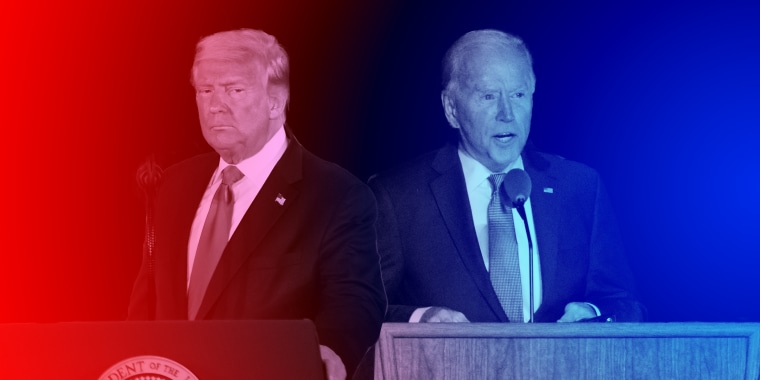With the 2020 presidential race unsettled on Wednesday morning as votes in multiple battleground states are still being counted, the election between President Donald Trump and Democratic challenger Joe Biden is coming down to the wire.
The current state of the election raises the question of what happens if there is a tie in the Electoral College. The Electoral College consists of 538 electoral votes, and to secure the presidency, the winner needs 270. But it is possible both candidates each win 269 (or fewer, if a third-party candidate wins a state).
Can the Electoral College tie?
In this election, a tie could happen if Biden flips Arizona, Michigan and Wisconsin, all of which Trump won in 2016, and if all other states vote the same way they did in 2016, political analyst David Mark wrote for NBC News last month.
If no candidate receives majority of electoral votes, the election of the president is left to members of the House of Representatives, while the selection of the vice president is decided by the Senate.
Each state delegation from the House of Representatives gets one vote for president, meaning a state like California, which has 53 House members, and states like Wyoming and Alaska, which have one, would have equal weight in the process.
To win the presidency, Trump or Biden would have to win the majority of the states, at least 26, to be elected. Democrats still have majority in the House, but Republicans currently control a majority of the individual state delegations, each of which is worth one vote. But that could change, depending on the results of House elections in state-level races, because it is the newly elected House that would vote.
As for the vice presidency, Senate members would vote individually to select the next vice president, and the winning vice presidential candidate would need at least 51 votes to be elected. The majority in the Senate was Republican heading into the election, but there are still seven uncalled Senate races.
If the House of Representatives was to fail to choose a president by Inauguration Day, Jan. 20, 2021, the vice-president elect, chosen by the Senate, would serve as the acting president until the House resolved the deadlock.
An Electoral College tie has occurred once in U.S. history, during the 1800 presidential election, which was the fourth presidential election in the nation's history.
The House of Representatives deadlocked 36 times before selecting Thomas Jefferson, who had been tied with his own running mate, Aaron Burr, with 73 electoral votes each. That wild election scenario resulted in the 12th Amendment being passed before the 1804 election. The 12th Amendment created separate ballots for president and vice president for electors, and it reduced the number of presidential candidates available to the House to vote for in a contingent election from five to three.
